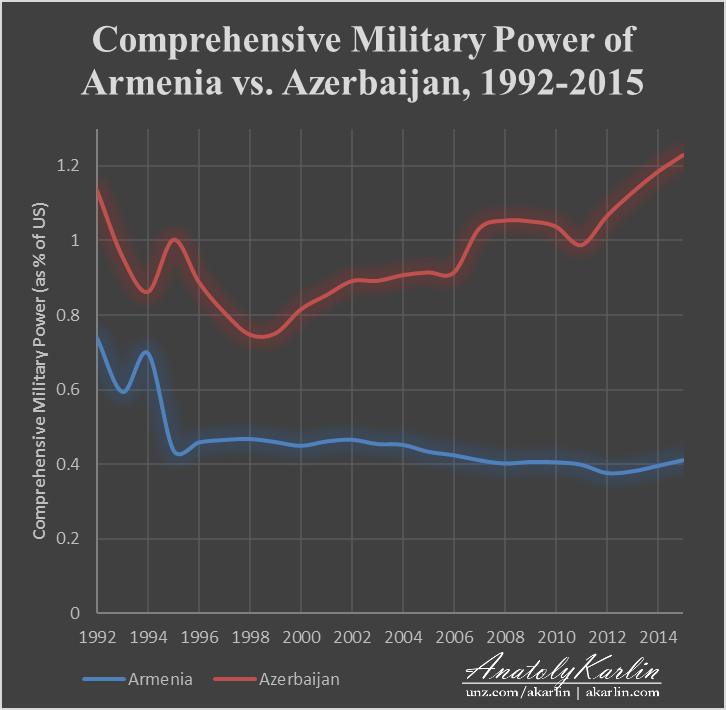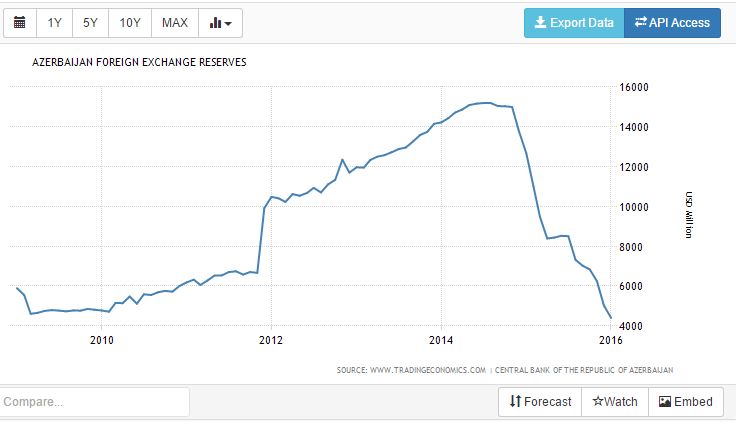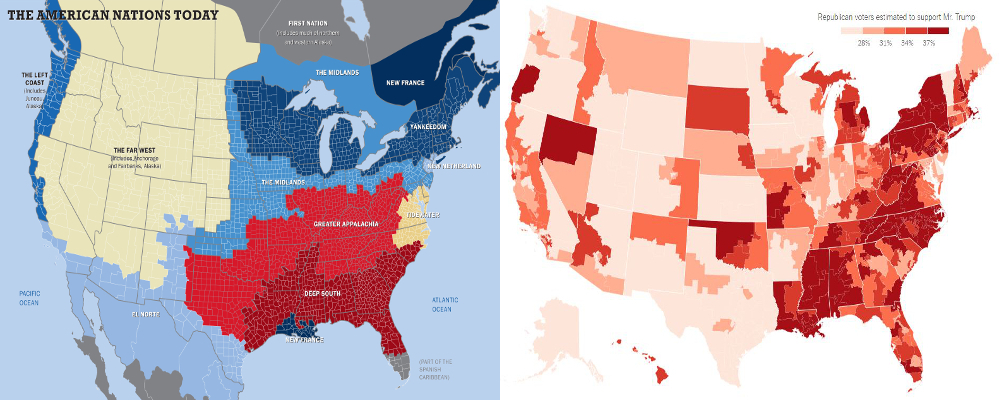The Results of the Transhuman Visions 1.0 Debate
This January I said I would aim to do an open thread once every week. I was off by an order of magnitude or so. Well, better late than never.

My partner Mike Johnson and I, arguing the anti-Open Borders positions against Scott Jackisch and Randal Koene, won. Not bad considering H+ demographics!
Though there was widespread support for Universal Basic Income even before the debate, Anya Petrova and Barbara West managed to extend its lead even further arguing against Jay Cornell and event organizer Hank Pellissier.
Finally, there was a panel discussing the nature of the Singularity and whether it could even happen between Andres Gomez Emilsson, Randal Koene, Brian Hanley, Ted Peters, Dan Faggella, and myself. One very interesting observation I heard here is that we have yet to figure out how to reliably construct a simulation of a complex computer chip based off a series of cross-sectional scans of it. The challenges in doing something like that for the human brain would be many, many orders of magnitude higher.
We decided we are going to do more of these events in a debate as opposed to a lecture/conference format because the audience feels more engaged that way.
Speaking of more events, the next Transhuman Visions 2.0 debate is on April 2, 2016 at the Octupus Literary Salon in Oakland, CA – you can still get tickets here – and will feature debates on consciousness, the transhumanist position on gun rights, and eugenics (yes Hank is brave enough to go there).
We also have some other plans for ensuring a future for futurism in the Bay Area, especially since it hasn’t been going so well in recent years – The Singularity Summit brand were acquired by Kurzweil’s Singularity University, a commercialized gimmick for businesspeople to look hip and tech-savvy; the Future Salons that connected innovative businesses at the cutting edge of technology and interested laypersons have withered away; and Hank himself is finding it difficult to find the time to organize his Transhuman Visions conferences. We are working on creating an umbrella organization to revive all of these activities but it is as of yet too early for any announcements.
I have gotten tangentially involved in a startup that could either flop or take Uber out of business. Unfortunately, I can’t say much more right now.
I have read Vodka Politics by Mark Schrad, whom I otherwise came to know through discussions on Russian demographics on my blog and later personal communications. Its thesis that vodka was the basis of Russian autocratic power is an interesting and original one, even if I think he sometimes overdoes it. I look forwards to reviewing it.
I haven’t had much time for other forms of culture like movies or video games. I did finally buy Fallout 4 and start exploring the Commonwealth Wasteland. So far it has been quite enjoyable though I don’t see myself replaying any of it.
***
Interesting Links & Quick Takes
World
(1) Obama’s huge interview with The Atlantic.
This is worthy of a separate post (or even series of posts), for now I will leave you wish Alexander Mercouris’ very important observation that hidden within it is an implicit admission that, contra his public rhetoric at the time, the US intelligence services had no conclusive evidence that Assad was responsible for the Ghouta chemical attacks (a claim that has since been further demolished by Seymour Hersh, the MIT study, and other experts).
This also means that it was Russia’s diplomatic offensive in 2013 that saved the world from essentially a repeat of the Iraq War (at the cost of having its reputation further tarnished by the neocon-run Western media).
(2) Russia’s Syrian Withdrawal – Why It Happened and Why Regime Change Remains Off the Agenda by Alexander Mercouris.
(3) Russian Diplomat Drops a Bombshell: US Expected ISIS to Seize Damascus by October by Alexander Mercouris.
(4) The American Colonial Office by Mark Yuray. Cargo cultism is a global phenomenon.
(5) Enough is enough — U.S. abdication on Syria must come to an end by Michael Ignatieff and Leon Wieseltier. These neocon freaks literally wanted the US to fight Russia this February.
USA
Let’s be honest: American politics are now all about Trump, Drumpf, and The Trumpinator.
(1) There was Bush Derangement Syndrome. As far as I know, I was the first pundit to come up with the term “Putin Derangement Syndrome,” to describe the Western media’s habit of blaming Putin for everything bad in the world regardless of what he actually does (the latest version of this is the “Putin is Weaponizing X” theme).
I believe the time has long come to officially recognize Trump Derangement Syndrome to describe the extraordinary level of vitriol and misrepresentation directed again him by the Establishment, including an extraordinary alliance of the radical Left, liberal progressives, the conservatives, and the neocons – even though Trump is objectively far more moderate than Cruz on social matters, doesn’t support a new war every year like Hillary Clinton or [insert moderate Republican empty suit], and has avowed his support for Israel.
If a man’s character is defined by his enemies, then Donald Trump must be a veritable saint.
- Everyone on The National Review in a bizarre Two Weeks Hate session.
- “White Working Class Deserves to Die” Kevin D. Williamson deserves special distinction.
- Basically all the neocons fleeing the sinking cuckservative ship into the Clinton Clique’s warm embrace – Eliot Cohen, Eliot Abrams, Bill Kristol, Robert Kagan…
- Ross Douthat – Over and over again to the extent that his once interesting NYT column is now basically just one long anti-Trump jeremiad.
- Pussy Riot
- Larry Summers, who helped set up Russia’s oligarchic system in the 1990s.
- Derek T. Muller, arguing in favor of manipulating arcane Electoral College rules from the 19th century to invalidate Trump’s Presidency should he win the popular vote.
- Neocon Max Boot says he prefers Stalin to Trump.
- But this Tiananmen Protester says that Trump is like a Communist leader. Which then begs the question… why wouldn’t Boot support him?
- Trump is Bad Because he Did Business with Russia (just like Mitt Romney!) Josh Rogan.
- Mormons who think drinking tea and Melania’s boobs are very bad.
- Charles Murray – The quintessential 1950s era American, who understands Fishtown unlike many of his conservative compadres and knows first hand what it is like to be on the receiving end of a broad vilification campaign, but in the end cannot reconcile his genteel libertarianism with his perception of Trumpian “fascist tendencies.”
Unsurprisingly, there is near perfect overlap between the Russian PDS sufferers, or demshiza, and knee jerk aversion to Trump.
(2) Fortunately, there are many based people to counter the cucks too.
Not surprisingly, Nicholas Nassim Taleb, an Orthodox-Levantine American, has fewer reasons to subscribe to neocon schemes than almost anybody else, not to mention the brains to see through them:
The *establishment* composed of journos, BS-Vending talking heads with well-formulated verbs, bureaucrato-cronies, lobbyists-in training, New Yorker-reading semi-intellectuals, image-conscious empty suits, Washington rent-seekers and other “well thinking” members of the vocal elites are not getting the point about what is happening and the sterility of their arguments. People are not voting for Trump (or Sanders). People are just voting, finally, to destroy the establishment.
(3) There are some reasoned analyses of Trump from ideological opponents who manage not to descend into TDS:
(4) Scott Alexander reviews The Art of the Deal:
“As best I can tell, the developer’s job is coordination, by which I mean blatant lies. The usual process goes like this: the bank would be happy to lend you the money as long as you have guaranteed renters. The renters would be happy to sign up as long as you show them a design. The architect would be happy to design the building as long as you tell them what the government’s allowing. The government would be happy to give you your permit as long as you have a construction company lined up. And the construction company would be happy to sign on with you as long as you have the money from the bank in your pocket. Or some kind of complicated many-step catch-22 like that.”
In other words, sounds like a job for someone at the upper end of the both the IQ and psychopathy bell curves. Prime Presidential material!
(5) The Color of Crime, 2016 Revised Edition by Edwin Rubenstein. Steve Sailer keeps emphasizing the value of storing some “a number of highly stylized but reasonably accurate interconnected numbers” in your head. I think to describe US murder and crime rates, a reaosonable approximation would be 10, 2, 1, 0.5, corresponding to Blacks, Hispanics, Caucasians, and Asians, respectively.
(6) Heartiste proves that physiognomy is real.
(7) My Last-Minute Decision to Enter the U.S. Senate Race in California by Ron Unz. Needless to say, I wish him the best of luck.
(8) Ron Unz on Trump:
Earlier this year, an ardent Trump supporter declared that his favored candidate was 95% a clown but 5% a patriot, and therefore stood head-and-shoulders above his Republican rivals, and this sounds about right to me.
 (9) Bernie Sanders’ Electoral Fortress of Whititude by Steve Sailer.
(9) Bernie Sanders’ Electoral Fortress of Whititude by Steve Sailer.
Bernie wants to extend gibs for all. Whites, as well as ideologically Leftist Blacks, support that.
Hillary Clinton instead just wants to continue buying off different social groups with cash and affirmative action while letting the oligarchs be and pursuing the neocon agenda abroad with far more enthusiasm even than “don’t do stupid shit” Obama. Therefore, ethnocentric but not particularly Leftist Blacks – the majority of them – naturally support Clinton.
Or to put it more crudely: Mo money fo dem programs > free higher ed, medicine, civil rights, no more wars for the neocons.
(10) The Donald Trump Phenomenon by JayMan. Ironically, its much harder to explain Trump in pure HBD terms, and I am in qualified disagreement with this thesis. There will be a separate post on this.
(11) EXCLUSIVE: Twitter Shadowbanning ‘Real and Happening Every Day’ Says Inside Source by Milo Yiannopoulos. I have to admit this is a very clever way of purging undesirables. Also: 5 Ways to Get Banned From Twitter.
(12) Internet Nazi/troll Andrew “weev” Auernheimer documents @Jokeocracy’s hilarious Twitter suicide bombing.
Russia/Eurasia
(1) Is Putin Weaponising Stupidity? by Rob Slane. This is going to become a classic.
All well and good you might say, but it does beg a question: Why would Putin want to make Western leaders do and say stupid things? What benefit would he get out of Weaponising Stupidity? Again the answer is obvious, is it not? The more the leaders of Western countries and the media have displayed their folly and sheer ignorance, the more they have dragged their countries towards collapse. And since Putin’s goal is obviously to Weaponise the World, no doubt for his own dastardly reasons, you can begin to see how it would be in his interests to use Stupidity as a Weapon to achieve his aims. Can’t you?
Then again, I don’t want to be overly dogmatic about my new theory. I may be wrong. In fact, I still hold out the possibility that the truth might well be much simpler. It could just be a case that we really are run by ignorant buffoons who never learn, and even if Mr Putin were inclined to develop a way of Weaponising Stupidity, he’d actually be wasting his time.
(2) Russia’s Foreign Policy: Historical Background by Russian Foreign Minister Sergey Lavrov. I found it rather rambling and schizophrenic, to be honest – Russia saved Europe from the “heavy Mongolian yoke” but at the same time was “energized” by it. Though admittedly it does rather reflect the muddle-headedness we see in the Kremlin. Still, its a whole lot better than the mendacious tripe that passed for Western “analysis” of this essay.
(3) Lev Gumilev: passion, Putin and power by the Charles Clover in The Financial Times.
It’s actually not a half-bad summary of Gumilev’s theories on passionarity (an original Soviet version of “asabiya”) but he rather overstates Eurasianism’s real influence on Russian politics. The foremost proponent of Eurasianism, Dugin didn’t have enough pull to avoid getting fired from Moscow State University. Support for “Greater Russia” is far from exclusive to Eurasianists, and including figures like Solzhenitsyn – who is definitely not a Eurasianist. A Ctrl-F on Putin’s speeches reveals considerably more mentions of people like White reactionary philosopher Ivan Ilyin, or even the Christian liberal Vladimir Solovyev, relative to Lev Gumilev. That is because Putin, as someone without strong ideological predilections of his own, is open to mixing and matching ideologies from all over the spectrum, and in any case Gumilev’s work has also been used to provide fuel for non-Russian and in fact not exactly Russophilic movements like particularist Turkic nationalisms.
(4) Autonomy vs. Sobornost by Paul Robinson.
(5) Khodorkovsky, The Murder Case by Alexander Mercouris.
(6) Blast from the past: How to read the Western media by Patrick Armstrong.
HOW TO READ THE WESTERN MEDIA. When they say Kiev forces have re-taken the airport, know that they have lost it. When they say giving up South Stream was a defeat for Putin, know it was a brilliant counter-move. When they say Russia is isolated (a stopped clock, here’s The Economist in 1999!), know that it is expanding its influence and connections every day. When they say Russians are turning against Putin, know that the opposite is true. When they speak of nation-building in the new Ukraine, know it’s degenerating into armed thuggery (see video). Know that when they speak of Kyrzbekistan, they’re not just stenographers, they’re incompetent stenographers. Take what they say, turn it upside down, and you’ll have a better take on reality.
Ukrainian Conflict
(1) Ukrainian Government Crisis – Kiev Swirls in Oligarch-led Intrigues by Alexander Mercouris.
(2) Northern Gabon? How about Liberia! Yet another zrada for the svidomy, delivered by Condoleezza Rice.
(3) Why Ukraine needs Russia more than ever by Nicolai Petro. Unfortunately, things like the economy are tertiary concerns for the svidomy relative to the Grand Imperative of dismantling the Soviet legacy, such as polio vaccinations.
 (4) Why Russia Stopped at Crimea by Leonid Bershidsky. Covers the recently released audio recordings in which the leaders of the Maidan coup acknolwedged that the vast majority of Crimeans supported incorporation into Russia and (with the exception of Turchinov) saw that military resistance would be futile. The Maidan’s foreign ideologues were non too happy with him.
(4) Why Russia Stopped at Crimea by Leonid Bershidsky. Covers the recently released audio recordings in which the leaders of the Maidan coup acknolwedged that the vast majority of Crimeans supported incorporation into Russia and (with the exception of Turchinov) saw that military resistance would be futile. The Maidan’s foreign ideologues were non too happy with him.
(5) Report on Donbass by Paul Robinson, on the International Crisis Group’s recent assessment of the situation there.
The International Crisis Group’s report makes other important points. First, Moscow appears to want the Minsk agreements to work, as shown by the fact the kurators are enforcing the ceasefire. The Russian presence in Donbass is probably reducing violence, not increasing it. Second, support for the rebellion is not overwhelming, and so there is a prospect of convincing the people of the DNR and LNR to reintegrate with Ukraine. But the longer Kiev maintains its policy of blockading Donbass, the more remote this possibility becomes. Ukrainian policies are thus probably counterproductive. Third, Moscow is not pursuing some grandiose plan to restructure the international order, expand its empire, or any of the like. Rather, it is improvising in an effort to find a way out of a situation it does not want. This refutes claims that the war in Donbass is just a first step in a broader plan of Russian aggression, which must be halted now lest Russia be encouraged to advance further (e.g. into the Baltic states).
(5) Blast from the Past: Eduard Limonov predicts the Ukrainian Conflict in 1992 (in Russian).
(6) Crime and murder rates soar in Ukraine. Separate post forthcoming.
(7) Broken Ukraine by Linh Dinh.
Europe
(1) A Stolen Europe by The Saker. I agree with 80% of it.
(2) Le Mépris by Guillaume Durocher. “Meanwhile, South Africa is obviously an affirmative-action BRIC” – top kek.
(3) Former paid agent of Swedish Security Police dictated Amnesty Sweden’s stance against Assange by Marcello Ferrada.
(4) How Europe’s most liberal nation gagged its own people on migration attacks by Sue Reid. However, Sweden gets 100/100 on freedom from freedom experts Freedom House so this is okay.
(5) The Swedish media war on Assange – “Australian pig”, “retard”, “white-haired crackpot”, “scumbag” – Truly the very paragon of the adversarial, uncowed press speaking truth to power.
(6) Lying Press? Germans Lose Faith in the Fourth Estate at Spiegel. Features a nice infographic of the wax and waning of the term “Lügenpresse.”

(7) Ex-German media boss admits on live radio the national news agenda is govt controlled by Bryan MacDonald. Also from Breitbart.
 (8) Member of German Left Youth Party Apologizes to Refugees on Facebook After Alleged Sexual Assault by Migrant by Marc Geppert. This is well in line with her party’s ideology.
(8) Member of German Left Youth Party Apologizes to Refugees on Facebook After Alleged Sexual Assault by Migrant by Marc Geppert. This is well in line with her party’s ideology.
(9) The Guardian is SHUTTING DOWN comments on its immigration articles.
(10) Rotherham Police Had Sex With Abused Girls And Covered For Relative Sex Groomers by Liam Deacon for London Breitbart.
Maybe it wasn’t even so much that Rotherham police didn’t want to appear racist as didn’t want to appear rapist. 
 (11) Angela Merkel Diagnosed by Psychoanalyst as ‘Narcissistic’, Verging on ‘Mental Breakdown’ by Sarkis Zeronian.
(11) Angela Merkel Diagnosed by Psychoanalyst as ‘Narcissistic’, Verging on ‘Mental Breakdown’ by Sarkis Zeronian.
(12) The Case for Surge Funding by George Soros. But since Putin is “weaponizing” refugees to undermine Europe – indeed, according to Soros himslef, Putin is a bigger threat to Europe’s existence than Isis – does this mean that Soros is admitting that he is… an agent of Putin?
(13) George Soros: A psychopath’s psychopath by Sam Gerrans.
(14) Israel’s unwanted African migrants by Kathy Harcombe. How sad.
Science – Tech, Futurism
(1) How Google’s AI Auto-Magically Answers Your Emails by Tim Moynihan. Hello ELOPe! 
(2) Human Germline Engineering: the Game-Changer by Jim Daniel.
(3) John Horgan interviews Eliezer Yudkowsky. I’ll have a separate post on this.
(4) Why fruits and vegetables taste better in Europe by Julia Belluz. My theory: American hypercapitalism in agriculture, which prioritizes calorie maximization over flavor and nutrient density. Would also explain why US obesity crisis preceded Europe’s by about 20 years.
Culture – History, HBD
(1) Slaughter at the bridge: Uncovering a colossal Bronze Age battle by Andrew Curry. There were up to 5,000 warriors at this particular battle, which is quite remarkable since that would imply the military “mobilization potential” of those old Germanic tribes was if anything even greater than that of an ancient state like Egypt with a literate priestly caste. Though as T. Greer points out, Azar Gat argues that the upper bounds of mobilization potential were the same across most civilizations.
(2) The kindness of beasts by Mark Rowlands. The view that animals don’t have some sort of moral mechanism has always struck me as highly autistic. But apparently this is just one of the many other functionally-creationist ideas, like Blank Slatism, that are quite common amongst the “scientific” community.
(3) Review of Houellbecq’s Submission by Unz commentator Lazy Glossophiliac. Surprisingly, he didn’t have much good to say about it.
(4) viscous populations and the selection for altruistic behaviors and family types in eastern europe, 1500-1900 by hbd*chick. I’ll have a separate post on this.
(5) Stereotypes are relevant for judgments about individuals even when one has individualized information by Emil Kirkegaard, quoting from Neven Sesardic’s book Making Sense of Heritability:
The point to remember is that when many people say that “an individual can’t be judged by his group mean” (Gould 1977: 247), that “as individuals we are all unique and population statistics do not apply” (Venter 2000), that “a person should not be judged as a member of a group but as an individual” (Herrnstein & Murray 1994: 550), these statements sound nice and are likely to be well received but they conflict with the hard fact that a group membership sometimes does matter. If scholars wear their scientific hats when denying or disregarding this fact, I am afraid that rather than convincing the public they will more probably damage the credibility of science.
 (6) The incredible correlation between IQ & income by Pumpkin Person.
(6) The incredible correlation between IQ & income by Pumpkin Person.
A correlation of 0.49 is more than double the 0.23 correlation between IQ and income reported in a 2006 meta-analysis by Tarmo Strenze and nearly triple the 0.16 correlation between IQ and net-worth found in a 2007 study by Jay L Zagorsky, however it is similar to the 0.4 correlation between IQ and income asserted by authoritative Arthur Jensen in his 1998 book The g Factor.
This is an impressive post that Garett Jones and Dalliard ought to take a look at.
(7) Interview with Richard Lynn at Amren.
When I was in school I was bored by science. It all seemed so cut and dried. All you had to do was learn it. I found a lot of it very tedious, especially the practicals. You could spend a sunny afternoon pouring sulfuric acid on potassium and discover you ended up with potassium sulfate. I was quite happy to learn that this was so. I have a touch of ADHD that make it difficult for me to pay attention to lessons I find boring, and this made science classes even more uncongenial. I liked history and literature, in which there were differences of opinion and we were encouraged to make up our own minds about what was right. I have found this early education valuable, as I have often taken a different view to the received opinion. So when I went up to Cambridge in 1949 I began reading history. I liked it, but I did not fancy making a career in it. So much history has been done already that all you can do is add a footnote of the kind written by one of my contemporaries: “Trade between Bristol and Bordeaux, 1485–1490.” Or you could write another account of, say, the First World War, suggesting slightly different interpretations of some events. I did not think I would find any of these prospects satisfying. So I opted for psychology, a new science with a lot of scope for making new discoveries.
(a) He describes my own attitudes towards school/science perfectly. Near 100% analogous experience! (b) TIL that “Flynn” effect was actually first noticed in the 1930s! (c) I guess he jumped the shark in emigrating from Ireland to Northern Ireland, since in most respects the former is now more advanced.
(8) The Science On Genes And IQ: An Unstoppable Train by John Derbyshire.
It’s interesting that two people who have studied this topic and thought deeply about it but from different perspectives—Murray as a sociologist, Khan as a population geneticist—should be in such close agreement on the timescale here. Murray says “within three years”; Khan, “in the next <5 years.”
I really should hurry up with Apollo’s Ascent to take advantage of the furore this will create soon.
Life & Misc
(1) Is commercial pet food killing your pets? by P.D. Mangan. The answer is of course yes. I have always been sympathetic to this viewpoint. After all, if humans tend to fare better on a paleo diet, despite 10,000 years at most of agricultural adaptation, then it must be all the more relevant to our canine and feline friends.
Incidentally, this also affects research on life extension. For instance, it has always been fairly likely that people trying to eke out a few more years in life expectancy through caloric restriction were wasting their time, because of the cardinal differences in their life history cycles. But it turns out that even the mice experiments might have all been useless:
Geez, what do you think that does to calorie restriction and other anti-aging experiments done on mice, where the control animals are allowed to eat as much food that’s loaded with toxic amounts of iron as they want? Makes these experiments garbage, that’s what.
Calorie-restricted animals aren’t just eating less food, they’re consuming far less iron. And we already know that one of the results of calorie restriction is that CR animals end up with far less iron in their bodies.
In short: Don’t bother. If you really want to live a lot longer your best bet is probably to donate to organizations like the SENS Foundation, and encourage others to do the same.
(2) Nonfiction Writing Advice by Scott Alexander.
(3) Fallout vs. Skyrim. Who would win?
(4) Greg Egan derives a self-contained physics system from first principles for his Orthogonal hard sci-fi series. Changing one minus sign to a plus sign in an equation enables FTL travel.
(5) Andy Weir’s Quora advice for new writers:
1) You have to actually write. Daydreaming about the book you’re going to write someday isn’t writing. It’s daydreaming. Open your word processor and start writing.
2) Resist the urge to tell friends and family your story. I know it’s hard because you want to talk about it and they’re (sometimes) interested in hearing about it. But it satisfies your need for an audience, which diminishes your motivation to actually write it. Make a rule: The only way for anyone to ever hear about your stories is to read them.
3) This is the best time in history to self-publish. There’s no old-boy network between you and your readers. You can self-publish an ebook to major distributors (Amazon, Barnes and Noble, etc.) without any financial risk on your part.
(6) The Mongolian Death Worm via Wikipedia. Tolkien’s Were-Worms, sandworms, Tremors, Robert Jordan’s Worms/jumara, etc. – inspiration?
 RSS
RSS




































 (2) Try to sugarcoat it as you will, but
(2) Try to sugarcoat it as you will, but 








































